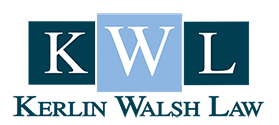Evidence suggests that many people are establishing trusts as part of an estate plan. Some motivations for creating a trust include avoiding probate, preserving privacy, planning for incapacity, protecting a beneficiary’s inheritance from creditors, minimizing estate taxes, and charitable giving.
Financial advisors are intimately familiar with a client’s financial situation and goals. You may have clients whose needs or goals align with the advantages of a trust. You may want to open a dialogue with these clients about implementing a trust. While you may not be able to offer detailed guidance, you can introduce them to various available trust types and how a trust might fit into their financial and estate plans.
Because of several converging trends—an aging population, rising asset values, a wave of wealth transfers, and pending tax law changes—clients may be interested now more than ever in a trust that can benefit them and create mutually beneficial arrangements between financial advisors and attorneys.
How to Spot Trust Opportunities
A client may not directly bring up the subject, but trusts have been a hot topic of late in the estate planning world, and there are signs that demand for them will continue to heat up in the coming years. The National Association of Tax Professionals’ director of tax content and government relations said that more baby boomers are utilizing trusts because of concerns about the next generation mismanaging their inheritance. In addition, such concerns are “causing them to create trusts to pass assets efficiently, but with some control being exercised from the grave.”[1]
A guest post at Kitces.com says that advisors can start the conversation about estate planning by first identifying whether a client has an estate plan.[2] Many clients likely do not; as of 2025, the number of Americans with a will is 24 percent and on the decline.[3]
Some of the leading reasons why Americans created an estate plan—or would consider making one—include the death of a loved one, family expansion, travel, the purchase of a home or significant asset, health concerns, retirement or other age-related milestones, and national or world events.[4]
Starting the Trust Conversation
With only around one-fourth of Americans having completed even a basic will,[5] the idea of a trust may seem like putting the cart before the horse. Whether a client should establish a will instead of or prior to a trust depends on their circumstances, but both options can and should be considered.
Reasons that clients may want to consider a trust include the following:
- Having a large estate (specifically a net worth exceeding the federal estate tax exemption or state-level exemptions for estate and inheritance taxes). If so, they could consider the following:
- A grantor retained annuity trust allows the client to transfer assets to beneficiaries while retaining an income stream.A charitable remainder trust provides an income stream to beneficiaries, with the remainder going to a designated charity.
- A dynasty trust passes wealth down through multiple generations.
- Desiring complex distribution instructions, commonly sparked by having blended families, beneficiaries with special needs, or beneficiaries who are prone to financial mismanagement or vulnerable to creditors. These scenarios could lend themselves to the following:
- A spendthrift trust protects assets from creditors and prevents beneficiaries from squandering their inheritance.
- A supplemental needs trust enables a disabled beneficiary to receive financial support from the trust without affecting their eligibility for means-tested government benefits.
- An incentive trust makes distributions to a beneficiary upon their meeting certain conditions, such as graduating, obtaining employment, getting sober, or volunteering for charitable organizations.
- A qualified terminable interest property trust provides for a surviving spouse while ensuring that the deceased spouse’s assets ultimately pass to their chosen beneficiaries when the surviving spouse dies.
- Being exposed to unique tax liabilities, such as having extensive real estate investments or owning a business. Possible trust solutions could include the following:
- A qualified personal residence trust allows for the transfer of the client’s primary residence or, in some circumstances, vacation home, to a trust while retaining the right to live in it for a set period.
- An irrevocable life insurance trust holds a life insurance policy that uses the death benefit proceeds to cover estate taxes or provide liquidity to the business after the client’s death.
This list barely scratches the surface of the diverse estate planning scenarios that trusts can address, from beneficiaries with specific or special needs to estates with complex assets or challenging family dynamics.
While trusts offer various benefits, not all are the same. Bear in mind that the same trust type can also be used for different planning purposes or to simultaneously achieve multiple planning goals. A revocable living trust, for example, not only avoids probate but can also be used for incapacity planning and estate tax mitigation.
In addition, trusts can hold various types of assets, allowing clients to get creative by, say, transferring business interests into a trust for stronger asset protection and succession planning purposes. Clients can also name a trust on a beneficiary designation or transfer-on-death designation form to hold and manage the assets for their beneficiaries after the clients pass away.
For a more comprehensive rundown on trust types, ways they can be utilized, and how they may fit into a client’s estate plan, we welcome you to schedule a time to talk at 708.448.5169.
[1] Ronda Lee, More Americans are dealing with tax filings for trusts as older boomers pass away, Yahoo! finance (Apr. 5, 2023), https://finance.yahoo.com/news/more-americans-are-dealing-with-tax-filings-for-trusts-as-older-boomers-pass-away-211151632.html.
[2] David Haughton, JD, CPWA, How Advisors Can Work With Attorneys To Drive Better Estate Planning Outcomes For Clients, Kitces (Apr. 29, 2024), https://www.kitces.com/blog/financial-advisor-estate-planning-attorney-planning-cooperation-roles-client-referrals.
[3] Victoria Lurie, 2025 Wills and Estate Planning Study, Caring (Feb. 18, 2025), https://www.caring.com/caregivers/estate-planning/wills-survey.
[4] Id.
[5] Id.

